So, here’s a summary.
- Labour would impose a profits cap on private firms with NHS contracts. Its default level would be 5% on contracts worth more than £500,000.
- Excess profits would be returned to the NHS.
Department of Work and Pensions documents leaked to the BBC set out how scrapping several benefits and limiting access to others could help save £12bn
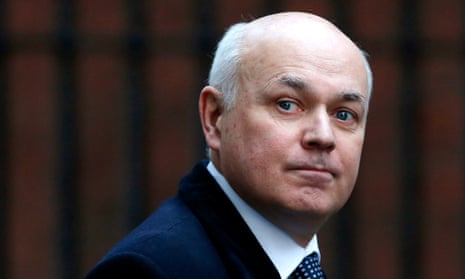
So, here’s a summary.
More from Patrick.
NHS commissioners would have power to lower/raise the 5% cap to take account of circumstance. Excess profits would have to sent back to NHS.
— Patrick Wintour (@patrickwintour) March 27, 2015
Labour says will introduce a more cost reflective tariff system to ensure that prices better reflect patient complexity. ps Easier said...
— Patrick Wintour (@patrickwintour) March 27, 2015
My colleague Patrick Wintour has a scoop from Labour’s campaign launch.
Labour to impose a profits cap on all outsourced NHS contracts over a value of £500,000 with default level set at 5 %.
— Patrick Wintour (@patrickwintour) March 27, 2015
My colleague John Plunkett has sent me more about last night’s Cameron/Miliband TV showdown. He’s got three new lines.
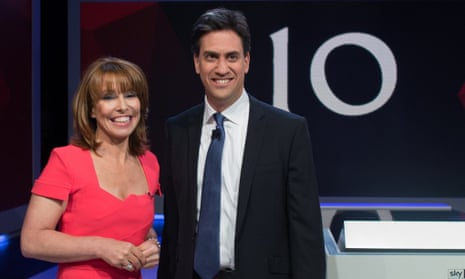
The media regulator Ofcom has received 110 complaints from viewers about “alleged bias” in the treatment of Ed Miliband and David Cameron in last night’s Channel 4/Sky News programme.
Certainly a lot of commentators - and instant Twitter reaction last night - thought Kay Burley was a lot tougher on the Labour leader, interrupted him more and asked more questions in the segment in which questions were put by the studio audience.
An Ofcom spokesperson said: “We are assessing the complaints before deciding whether or not to investigate.”
There’s no word yet from C4/Sky about complaints they may have received.
Last night’s leader interviews had another 322,000 viewers on Sky News (which simulcast it with Channel 4) giving it a combined audience including C4 of nearly 3m, a big hit for both.
Channel 4 peaked with 3m viewers, Sky with 371,000, way up on the news channel’s average ratings.
More details on the ratings. If Miliband’s decision to go second last night was an attempt to avoid a big TV audience, it failed.
More people were watching at 9.45pm when Miliband started (2.8m) than were watching when Paxo pounced on Cameron (2.5m) at the top of the programme at 9pm.
I posted a summary of Twitter reaction to last night’s Cameron/Miliband showdown here. And Guardian commentators posted their verdicts here.
Here are some of the other comment pieces I’ve seen about the event this morning that I found interesting.
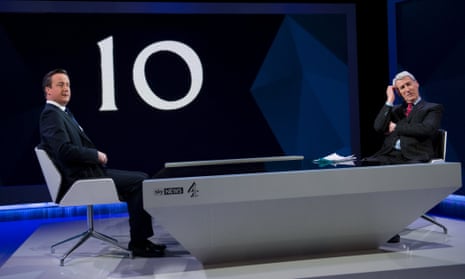
Cameron always seemed reluctant to concede fault and mistakes during his watch. Miliband, in contrast, readily admitted to past failures on immigration and inequality – though not on the level of the fiscal debt in Labour’s later years in office.
But while admitting mistakes may seem more honest, it may not necessarily persuade voters that you have learnt from them.
In any event, according to an instant poll conducted by ICM for The Guardian, neither man scored a decisive victory. Viewers put Cameron slightly ahead – by 47% to 41% – when respondents were asked who won the debate.
However, according to ICM only 8% said that watching the debate had changed their mind about how they would vote, and even then in some cases this apparently meant they were now simply firmer in their prior inclination.
Amongst those who supposedly did change their mind, Miliband apparently won more votes than Cameron. Perhaps for some he exceeded the low expectations they previously had of him, whereas Cameron was being judged by a higher standard. Either way though, Miliband will probably have to be a lot more persuasive in the next six weeks if he is to emerge as the more popular of the two leaders.
The central weakness of the Labour party’s campaign — the sense that it cannot be trusted with economic policy — was left intact by this encounter. On the critical question, asked by Mr Paxman, of whether Labour borrowed and spent too much, Mr Miliband stuttered his way to the wrong answer. It is hard to go before the country and seek high office with an answer to vital economic questions that is still so far from credible. He also had a difficult personal moment on his “strained” relations with his brother. On immigration, the mansion tax and relations with the SNP, where Labour policy is again weak, Mr Miliband also struggled.
The instant verdict of an ICM poll was that Mr Cameron had won the debate 54-46. That probably reflects the substance rather than the style of the debate which will probably not settle the election but it did allow the two principals to exhibit their different conceptions of the problems that face Britain. There is a genuine choice on offer in this election and it was on display on prime time television. There was also one obvious winner last night: Jeremy Paxman.
As for David Cameron, he was wrong-footed and looked it. Jeremy Paxman portrayed him as a rich kid who breaks every promise he makes. Mr Cameron has for years avoided long-form TV interviews, not least under the advice of Andy Coulson (not sure he’s still quite as rich as Mr Paxman painted him – certainly he’s not as rich as Mr Paxman). Last night the rustiness that comes with hiding from folk like Jeremy Paxman showed.
Andrew Cooper, David Cameron’s former pollster, said the programme would not shift a single swing vote. He knows a thing or two about the TV habits and profile of swing voters.
But Team Cameron will be aware that some polls say there are more “undecideds” than ever around this time round and that if last night built into a sustained series of under-performances, it could start to tarnish their man’s lead on leadership credentials and tighten a contest just as David Cameron thinks he is pulling away in front.
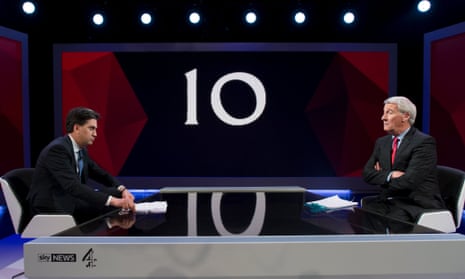
Miliband’s response to the “could you stand up to Putin question” was painful: “Hell yes I’m tough enough.” No normal person in Britain talks like that. He also called the audience Q&A a “town hall meeting”. Perhaps his expensive American advisers had too much of an effect on him.
He also came up with some surprisingly crude anti-Americanism, however, claiming that he had stood up to Barack Obama, whom he mystifyingly called “the leader of the free world”, over Syria. This is a travesty of what actually happened, when Miliband was in favour in principle of strikes to punish Assad until he realised how unpopular they were.
And his attempt to claim that he had stood up to Rupert Murdoch was contradicted in real time when Murdoch tweeted:
“Thanks for 2 mentions, Ed Miliband. Only met once for all of 2 minutes when you embarrassed me with over the top flattery.”
If the election campaign goes like that programme, Miliband will avoid humiliation, but he won’t do well enough to win.
Team Cameron was correct: the experience of watching the Labour leader can only beat expectations, which is why they were right to avoid a head-to-head debate. I thought Miliband’s guff about his brother was pitiful shlock, but Paxman’s sneering and drawling had the counter-productive effect of working the live audience round to Miliband’s side.
Of course a “debate” won’t win the election. It may have only the most marginal impact. It may be forgotten come election day, after a few more of these set piece events. But if it has an impact at all, it will be to remind those who have underestimated Miliband, who have traduced him, mocked him and written him off, that he’s a more than capable politician on his day. That’s not to ignore his flaws or excuse the mistakes that he has doubtless made. But a few more days like this in the coming weeks and he may just get to show he’d be a capable Prime Minister too, with a far more energised party behind him.
David Cameron has been doing a Help to Buy visit this morning.
As usual, he’s been in a hard hard and a high-vis jacket.
PM @David_Cameron in hard hat and hi vis again. pic.twitter.com/4n0yKSkgMj
— David Hughes (@DavidHughesPA) March 27, 2015


Grant Shapps, the Conservative chairman, has just tweeted this.
When Obama beat McCain 54-46 in a head-to-head it was called a landslide. But for the BBC that's called "no clear winner". Odd!
— Grant Shapps MP (@grantshapps) March 27, 2015
But Shapps seems to be referring to the result of the presidential election, not the result of a debate. And, although Obama won just 53% of the popular vote (to be precise), he won 365 seats in the electoral college, against McCain’s 173, so, in that case, “landslide” seemed appropriate.
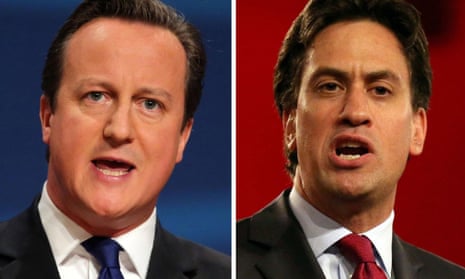
We’ve just had the ratings for last night’s Cameron/Miliband TV showdown. My colleague John Plunkett has the details.
Ratings just in - Channel 4 had 2.6m viewers for Paxo’s grilling of Cameron and Miliband.
These are big numbers, beating ITV documentary The Triplets Are Coming! (1.7m) and, with an 11.7% share of the audience, around double what C4 typically gets in primetime. They will be delighted.
That’s not as big as the debates in 2010 but, then again, this wasn’t a debate. C4 didn’t have one five years ago, so we can’t do straight comparison.
We’re still waiting for what it got on Sky News, which also broadcast it.
Here are today’s YouGov GB polling figures.
Update: Cons lead at 2 - Latest YouGov / The Sun results 26th Mar - Con 36%, Lab 34%, LD 7%, UKIP 13%, GRN 5%; APP-12 http://t.co/uRDMHyWTZE
— YouGov (@YouGov) March 27, 2015

According to the Daily Mail, Theresa May, the home secretary, wants to change immigration laws so that illegal immigrants are deported before they get the chance to appeal.
Illegal immigrants would be put on a plane before they get the chance to appeal under Conservative plans to rip up deportation laws.
Home secretary Theresa May wants to implement a new regime of ‘deport first, appeal later’.
The rules, to be brought in if the Tories are re-elected, would apply to anyone with an expired visa or those living in Britain without permission.
The only exceptions would be asylum-seekers or migrants who could suffer ‘irreversible’ harm if sent back to a dangerous country. The move seeks to end the racket of thousands of illegal immigrants being able to prolong their stay in Britain for months or even years by lodging a string of appeals and judicial reviews.
Asked about this on ITV’s Good Morning Britain, Douglas Alexander, Labour’s election strategy chair, said that if this was such a good idea, May should have introduced it earlier.

If Theresa May is so worried about this, she’s been the home secretary for five years – I think your viewers will reasonably say: why is she announcing with six weeks to go to the general election a policy she could have implemented many years ago?
Comments (…)
Sign in or create your Guardian account to join the discussion